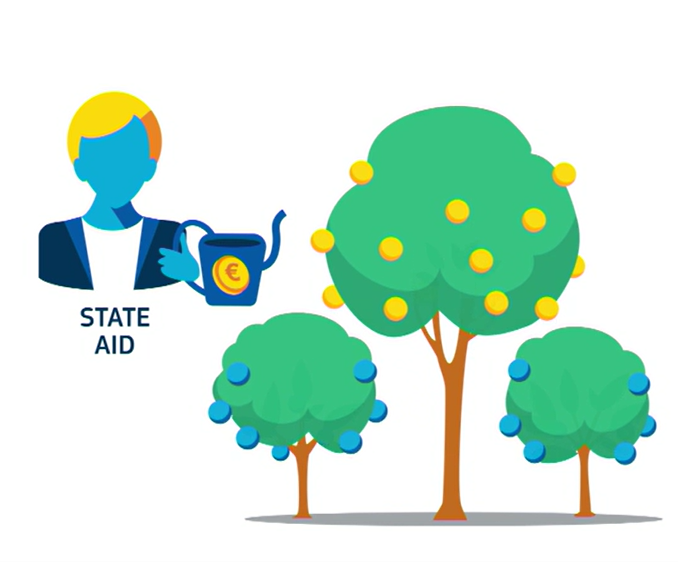Making full use of increased state aid
- Latest News, MBB News
- Latest News, MBB News

The European Commission’s revised De Minimis Aid Regulations came into effect in January. The changes to the regulations were made to adapt rules to the current economic context which businesses face. These regulations refer to the state aid limit imposed on most European businesses.
State aid rules determine how much money a company can receive from the government before it is considered as distorting the market uncompetitively. The purpose of these limitations is to ensure a level playing field – under the logic that only a competitive business should survive and that businesses should not survive because of money handouts from the government.
Previously, through most financial measures offered through institutions such as Malta Enterprise, businesses could only receive support of up to €200,000 over a few years. This ceiling has now been raised to €300,000. However, the reality on the ground in the experience of the Malta Business Bureau (MBB) is that most businesses in Malta have likely not been benefiting from the full state aid amount available to them.
This represents immense missed potential for the competitiveness of Malta’s businesses, as these funds represent potential investments in future-proofing industry and hoteliering alike.
Making full use of such potential funding entails a journey, and most begin with an energy audit. Following years of MBB assisting businesses with energy efficiency, one thing which has become apparent is that there is a misapprehension regarding the word ‘audit’. The word conjures images of bureaucracy, scrutiny and expense.
Particularly for SMEs, an energy audit conducted correctly offers tremendous cost-saving opportunities, and ultimately a reduction in bureaucracy for businesses. Such a reduction in bureaucracy is evident when businesses obtain data through audits which make it much easier to apply for EU and national funding. In-house expertise is not required to the same degree if the numbers are already in hand.
An Energy and Water Agency (EWA) study commissioned by the Malta Business Bureau and published in August 2020 explains exactly why industry struggles to benefit from funding opportunities. Titled Energy Trends Within Malta’s Manufacturing Sector, the report follows 30 interviews carried out with various manufacturing companies.
One of the key findings was that SMEs are not even aware of what financial support is available to them to begin with. Furthermore, there is a gap not only in understanding what support is available, but in terms of having the in-house expertise to successfully navigate grant applications.
Many businesses struggle on a day-to-day basis, and going through a funding process is perceived as too risky in terms of the allocated time. Furthermore, there is a lot of repetition between funding applications, when a centralised database of requested documentation and data would help cut red tape for businesses.
Making full use of the increased state aid limit of €300,000 presents a policy opportunity for institutions to address. However, EU-funded projects such as EnergyEfficiency4SME (EE4SME) are an EU-driven strategy to plug such gaps and present case studies of how to take industry forward, by helping businesses apply for financing measures which fall under state aid regulations.
Such measures include the recently relaunched Smart and Sustainable incentive from Malta Enterprise, which supports investment covering around 50 per cent of the eligible expenditure up to a maximum grant of €100,000 per project. Fondi.eu’s Digitalise Your Business Grant similarly covers around half of the costs of investing in financing hardware, software and digital solutions for companies up to €120,000 per project. In both cases, Gozitan enterprises receive a higher co-financing amount.
EE4SME is funded by the EU’s LIFE programme and consists of a consortium of 23 partners across Europe currently working to help businesses cut costs as part of a journey that begins with energy auditing. The gap in human resources identified in the Energy Trends report is bridged through the provision of HelpDesks in each participating member country which can sit down with businesses and help to recommend specific financing opportunities to match their project ideas.
With EWA as a partner in the project alongside MBB, the Maltese section of the consortium is well-equipped to guide businesses on a journey which brings dividends beyond, but including, cost-cutting.
Both MBB and EWA will continue to work on policy and project opportunities to help take Malta’s competitiveness to the next level. Ensuring that businesses in Malta make the full use of the state aid available to them, while cutting costs and reducing emissions, will take a concerted effort between industry, government and social partners alike, with a clear understanding of the challenges involved.
Nonetheless, with the support of EU-funded initiatives, such as EE4SME, and targeted investment, the benefits from revised strategic regulations can be maximised for the benefit of all.
Timothy Alden is the project manager on sustainability initiatives within the Malta Business Bureau – Malta’s Business Gateway to the EU.
This article was first featured in the Sunday Times of Malta on the 28th of April.
Share this article on socials:
25+ years of powering business excellence.
Related
More related news.
July 17, 2025
- Latest News, MBB News
MBB welcomes larger EU Budget, calls for direct business support and no corporate levy
June 25, 2025
- Latest News
ENERGY INVESTMENT A RISING PRIORITY, BACKED BY STRONGER BUSINESS SUPPORT
June 4, 2025
- Business News, Latest News, MBB News

